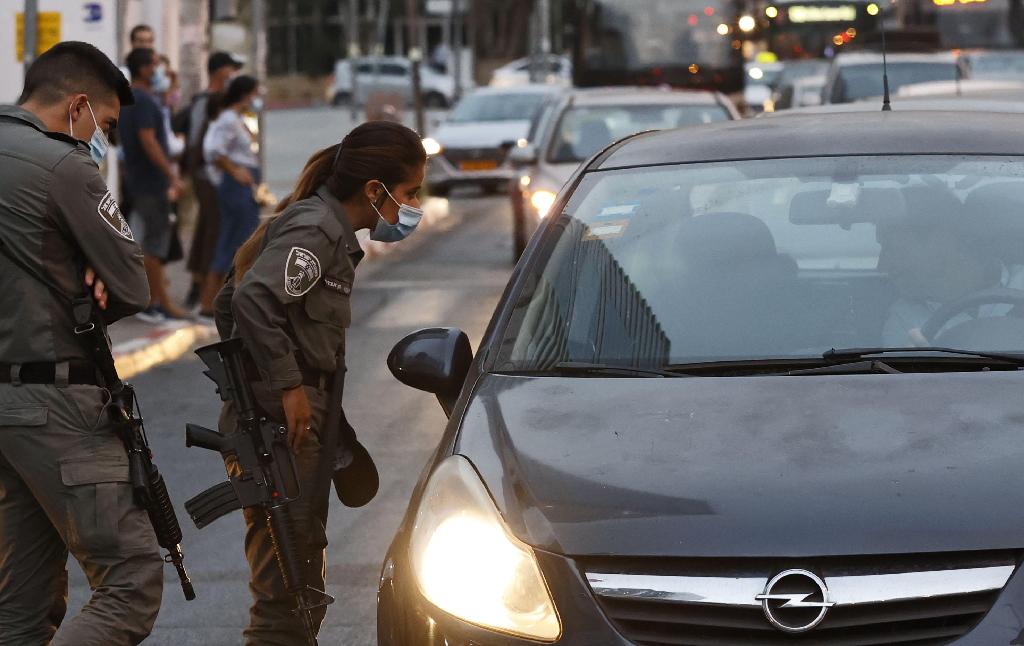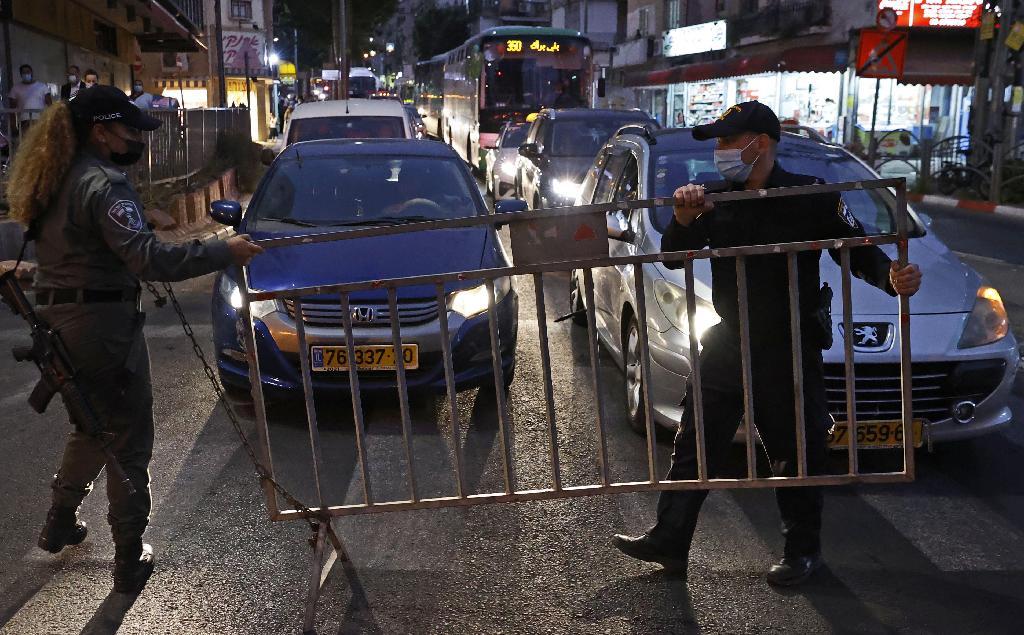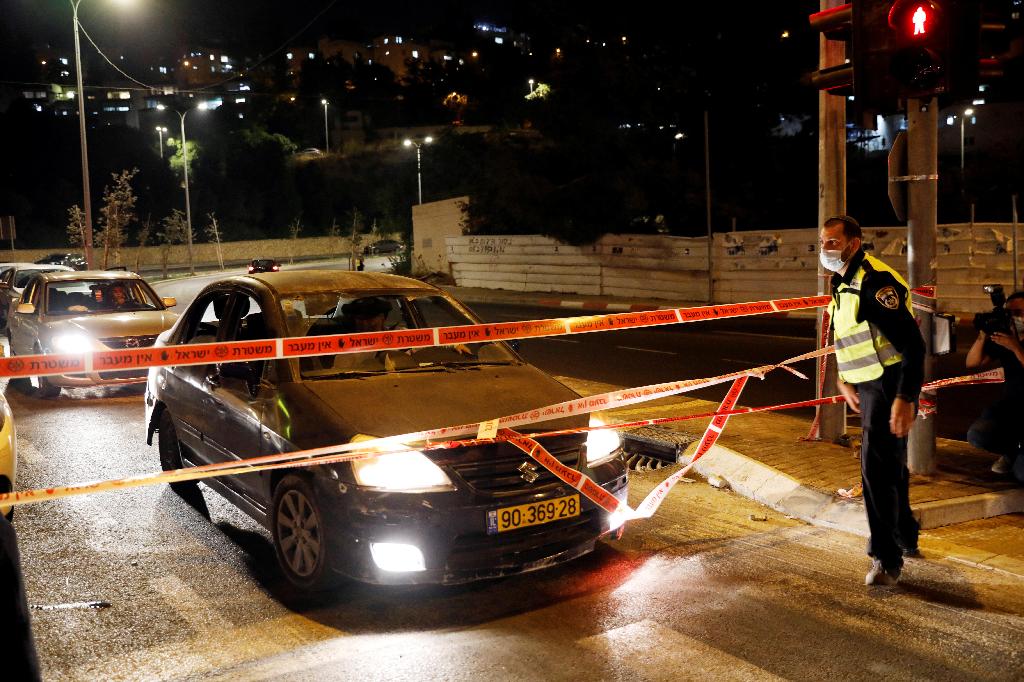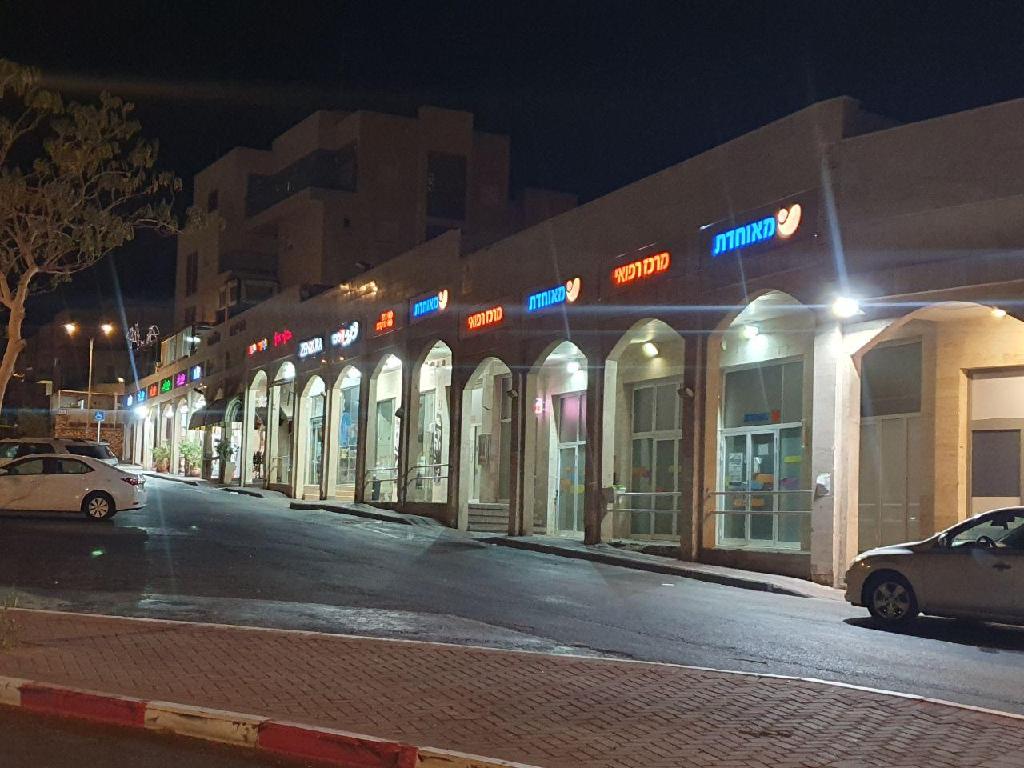Getting your Trinity Audio player ready...
Residents of forty cities and neighborhoods across Israel showed their discontent after being placed under partial lockdown due to surging coronavirus infections in the country, with many of them questioning the efficacy of the move.
Business seemed to go on as usual in the northern town of Rekhasim, as many residents left municipal bounds on their way to work.
However, the local education system remained shuttered and citizens were denied by police to leave the town during curfew hours for non-essential needs.
Municipal official Yossi Kakoun said that the enforcement of the curfew was very lax, with many residents and non-residents entering and leaving the town freely.
"We visited the police checkpoint last night and we saw that everyone who wanted to enter, whether a resident of the place or not, entered freely. Everyone who said they were going to pray were let out," said Kakoun. "We try to be stately and deliver the messages as we receive them, but there is a great deal of mistrust here because of all the upheavals."
The streets of Bnei Brak, however, remained dormant as the city slipped out of its first coronavirus lockdown since April.
Much like the last closure during Israel's first wave of coronavirus outbreaks, large police forces were deployed to the ultra-Orthodox city and barriers and checkpoints were set up.
However, officers, reportedly, did not question residents as thoroughly as in the past.
According to police, officers made great efforts to work with the locals who have lost faith in the government's decisions and claim that there is not much sense in nightly curfews.
Some residents claimed that a nightly curfew hurts the local economy just as much as a general lockdown since the education system remains shuttered and many parents are forced to stay home with their children.
Jerusalem police located two mass events that took place during curfew hours in the yards of two homes in the capital's downtown area, with about 200 participants in each of them.
Police officers, reportedly, asked the participants to disperse and made sure there was complete compliance with health ordinance.
Officers fined three individuals who organized the events.
In the southern resort town of Eilat, just one neighborhood was placed under lockdown.
Only a handful of people were seen in the neighborhood's streets, but residents could still leave the area easily using public transportation.
Residents claimed shuttering the local education system made little sense since students were still allowed to meet with friends residing in other areas of the town during the day and said that they were paying the price so that the town's tourism industry could continue operating.
Despite restrictions also placing a ban on mass gatherings, weddings took place as usual in the Arab towns of Umm al-Fahm and Baqa al-Gharbiyye, with some scheduling the events to noon hours.
Umm al-Fahm Deputy Mayor Muhammad Majadli said that the restrictions are unlikely to prevent such events from taking place in the future.
"Will the restrictions prevent such events? No. They'll simply move them from event halls – where we can monitor and enforce – to backyards where we can do nothing," said Majadli.
The Health Ministry reported Wednesday evening that 3,563 people have been diagnosed with coronavirus in the previous 24 hours, breaking negative records set only in the last few days.
Health authorities conducted 44,542 coronavirus tests, with some 8% of them returning positive.
There are currently 31,263 active coronavirus carriers and 926 hospitalizations. More of half of the hospitalized patients, 478, are in serious condition, among them 143 patients on ventilators.
Ten more Israelis passed away due to complications of COVID-19, the illness caused by the novel coronavirus, bringing the country's virus-related fatalities to 1,053.





